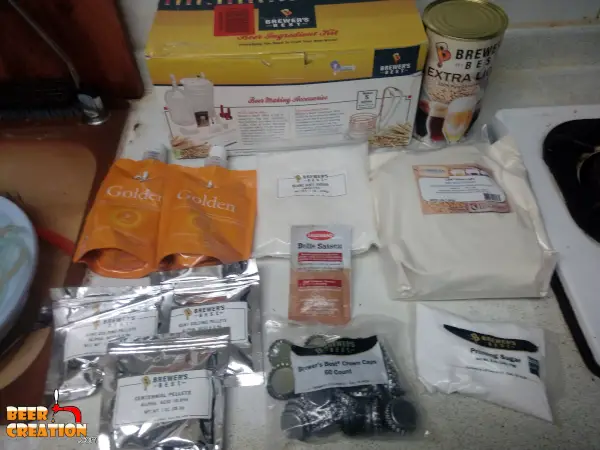As every good homebrewer knows, our favorite beer is created when yeast chows down on some lovely sugary wort, producing alcohol and carbon dioxide. So, if all we need is sugar, does that mean we can add it willy nilly to our wort?
Sugar, in any of its variations, can be added to wort, as many beer recipes call for added sugar so as to achieve the correct character and profile. But, adding sugar affects the specific gravity of an unfermented beer and the final ABV as well as producing an undesired dryness in the finished beer.
I’ve personally used additional sugar in several of the beers I’ve brewed, sometimes it was planned and more often than not, it was a hail mary move to save a brew day from disaster.
So, I’d like to outline a few things you should know about using added sugar during your own brewing adventures.
Why add sugar to your wort?
I think the first time I realized that sugar, by this I mean intentionally added sugar, was used in beer was on a tour of the Orval brewery in southern Belgium. I had been living nearby and saw that pounds and pounds of this thick, mouth-watering sugar (candied sugar, I read) was used to produce my favorite Trappist beer, Orval.
So why do the monks at this famous brewery use so much additional sugar when malt grains naturally give us sugar in the wort during the mashing process? Well, there are two real reasons to add sugar to your beer, so let’s talk about them.
Sugar adds flavor and character to your beer
The first reason to add sugar to beer is really because it’s all part of your dastardly plan to knock your brewing club buddies’ socks off when you reveal your next Belgian Strong Golden Ale.
Certain sugars will subtly change the mouth-feel and taste of your finished beer, and this is why monks and lesser brewers worldwide reach for their candi syrups.
While some sugars such as dextrose and sucrose will totally ferment out in the fermenting vessel, other more complex sugars may stick around which can really set a beer off.
I first used sugar in this way early on during my extract brewing days when I brewed this Belgian Golden Ale kit (sold on Amazon) , it was fantastic!
Adding sugar can also lighten the body of your beer in terms of mouthfeel, while still giving it a decent punch in terms of alcohol.
Sugar can boost your wort’s low specific gravity
The dirty little secret every homebrewer won’t tell you is that most of us don’t brew the perfect beer every time, I certainly don’t. I recently changed from a more rudimentary BIAB system to an all-in-one brewing system (this is the one I got – Brewer’s mash and boil with pump – sold on Amazon) and the first time I brewed with it, I really messed up.
When you were hoping to end your brew day at an original gravity (OG) of 1.048 but you came in at 1.022, then adding a pound of sugar will help you get those numbers. Nevertheless, as that sugar content doesn’t originate from your grist, it will slightly alter your beer and throw off its balance.
Sugar will beef up your beer’s ABV
Whereas most of us will reach for inexpensive sugar to raise a low OG to normal levels, there is nothing stopping you from going rogue and really pumping up its sugariness. As you probably know, the more food we give to yeast the more it will eat and the more alcohol it will poop out.
If you have ever tasted a very strong ale or lager, it’s more than likely that the brewer dumped a lot of extra sugar into the wort. Often it leads to quite a distinctive aftertaste, and not always a pleasant one. Personally, I’d rather get added fermentable sugar from my grain bill than rely on dextrose or other sugar sources (when I’m not messing my brew day up, that is!).
Sugar can give your beer gas
The most common use of sugar in brewing is probably when you want to bottle condition your beer. By adding a small amount of priming sugar (normally corn sugar) to your fermented beer, you can wake up dormant yeast and produce carbon dioxide inside the bottle.
This process can also give your beer the final character it needs to make it taste the way you want it. My all time favorite beer has to be Duvel, and they are all bottle conditioned just like homebrewed beer across the nation.
When to add sugar to your wort?
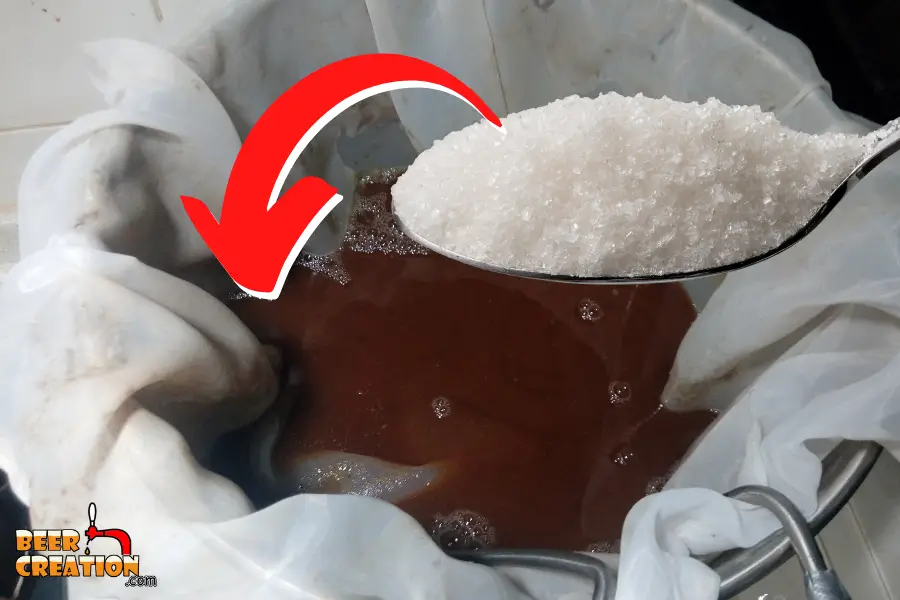
There is a lot of information out there about how and when to use sugar, and I’ve come to the following conclusion during my experimentation with it.
When aiming to provide yeast with sufficient fermentable sugar to produce ethanol and CO2, sugar should be added during the boiling phase of brewing. However, sugar can also be added during fermentation if desired but it always needs to be boiled to sanitize it beforehand.
The main issue you face is that different types of sugars are constructed differently on a molecular level, and this affects how yeast interacts with it. Corn sugar (dextrose) and ordinary table sugar (sucrose) are going to be broken down differently from maltose, the sugar present in malted grains.
There is a lot of science to explain this process, something I’m not qualified to go into here, but suffice to say if you are using excessive amounts of dextrose or sucrose in your brew, the yeast may not bother to get to work on the glucose-rich maltose. If you are using anything more than a pound or two of added sugar, you may want to experiment with adding most of it after a few days into fermentation.
This is because introducing some strains of yeast to a dextrose or sucrose-rich wort will make them less likely to tackle the longer chain sugar molecules present in maltose, leaving a lot more unfermented sugar in your beer than normal.
As a general rule of thumb, add any and all added sugar during the boil. For recipes where it is called for, the beer profile has been balanced and designed for this beforehand. When you have missed your OG numbers, add it at the end of the boil and try to remedy the mistake during your next brew day.
For more advanced brewers, you can feel free to experiment with adding sugar after fermentation has begun and see how this affects the beer’s flavor and mouthfeel.
New to homebrewing? Please feel free to read my ultimate guide to brewing beer at home and where to start.
How much sugar do I add to homebrew?
When adding sugar to your wort in order to raise its specific gravity, you can use the table below to calculate how much to use to reach your desired number.
Each type of fermentable listed below will give you a certain amount of dissolved sugar, specific gravity, in a certain amount of water.
For example, by adding 1 pound (2.2 kg) of corn sugar to one gallon (3.78 liters) of water will give you a specific gravity of 1.046 on your hydrometer. This is expressed as 46 points per gallon.
If you need to add 46 points to your five-gallon batch of beer, taking it from 1.010 to 1.056, then you would add 5 pounds (11 kgs) of corn sugar to your existing 5 gallons (18.92 liters) of wort.
Type of fermentable (1 pound/ 2.2 kg) | Points per gallon (PPG) | Specific gravity (1 gallon/ 3.78 liter ) |
|---|---|---|
Corn Sugar (dextrose) | 46 | 1.046 |
Molasses | 36 | 1.036 |
Cane sugar (sucrose) | 46 | 1.046 |
Candi sugar | 46 | 1.046 |
Candi syrup | 32 | 1.032 |
Brewery Grade Corn Syrup | 36 | 1.036 |
Cara-pils/Dextrine malt | 24 | 1.024 |
Crystal malt | 15 | 1.015 |
Black malt/Chocolate malt | 10 | 1.010 |
2-row Pale Malt (maltose)* | 25 – 30 | 1.025 – 1.030 |
Wheat Malt (maltose)* | 25 – 30 | 1.025 – 1.030 |
Munich malt (maltose)* | 22 – 27 | 1.022 – 1.027 |
Light Liquid Malt Extract (LME) | 36 | 1.036 |
Light Dry Malt Extract (DME) | 44 | 1.044 |
Honey | 32 – 40 | 1.032 – 1.040 |
What types of sugar can you add to wort?
You can use pretty much any sugar source in your wort that you have in your kitchen cupboard, but they will all give you something a bit different.
Sucrose
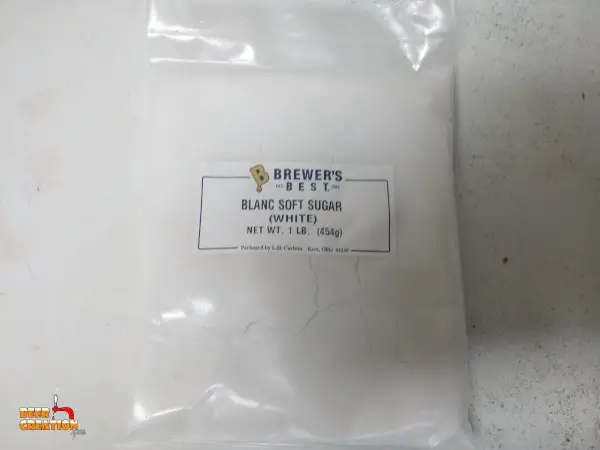
This is ordinary table sugar to you (cane sugar) and me and is perhaps the best option for boosting your low specific gravity because it doesn’t impact the flavor profile of a beer too much. Sucrose is 100 fermentable, meaning that the yeast will totally break it down into useful ethanol and CO2 byproducts.
Molasses
Molasses, very similar to brown sugar, is also sucrose-based but has more of an impact on the flavor of your beer. You can get some nice sweet rum notes when you use molasses or similar products
Dextrose
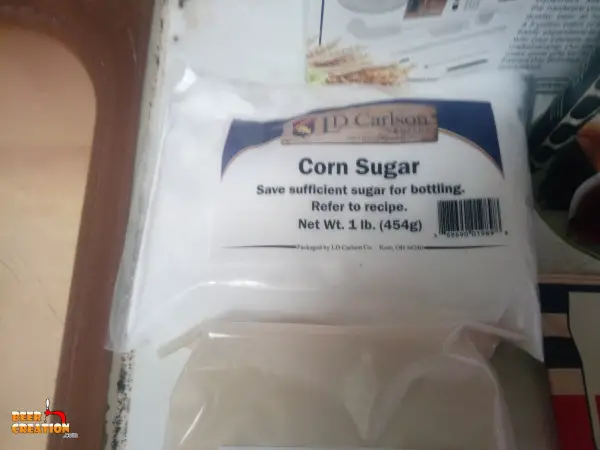
This is basic corn sugar, which is a purer glucose structure compared to the glucose-fructose combo of table sugar. This means it doesn’t have to be broken down by yeast before they devour it. Dextrose is best used for priming your beer conditioned beer, but can also be used to boost a wort’s SG.
Candi sugar
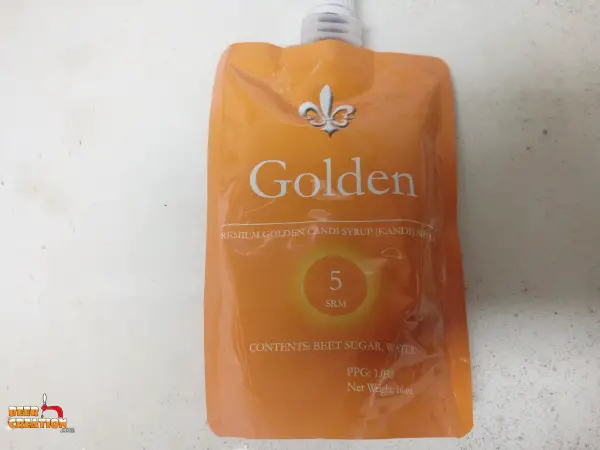
Candi sugar or syrup is also a sucrose-based fermentable but will add a sweet flavor as it has been caramelized to produce its dark appearance. Other than adding a certain flavor profile, it is no different than sucrose when it comes to the yeast.
Lactose
This sugar is produced from milk and is 100% unfermentable. This means that what you put into your wort will still be there after the yeast has fermented all other sugars. Lactose is perfect if you want to add sweetness and a full body to your beer. It’s great in stouts and some other styles and can work well with certain hops.
Honey
Honey is a great source of sugar and probably led to one of the first alcoholic beverages back in the year dot. Honey is fermentable in beer, especially when used in conjunction with other fermentables, and will add to its flavor and mouthfeel. Just be aware that different types of honey will give different results, so experiment.
What will added sugar do to your finished beer?
Apart from the added fermentable sugars in the unfermented wort which will lead to more potential alcohol, adding sugar can also affect the color, flavor and mouthfeel of your beer.
Added sugar’s effect on: Color
If you are using brown sugar, molasses or Belgian candi sugar or syrup, you will get a darker beer than if you didn’t use it. Of course this is largely dependent on how much you add to your wort. Dextrose or sucrose sugars will not have any effect on the color of your beer.
Added sugar’s effect on: Flavor
Again, brown sugar, molasses or Belgian candi sugar or syrup will add pleasing notes to your beer. They may even leave unprocessed sugars in the beer depending on how much you use and how active your yeast is. Using regular cane sugar or corn sugar won’t add anything to your beer’s flavor profile.
Added sugar’s effect on: Mouthfeel
One thing that using dextrose and sucrose will do is to affect the mouthfeel of a beer. Adding this type of sugar to the wort will make a beer lighter in body, whereas using something like Belgian candi sugar will give it a slightly heavier mouthfeel.
Are there any drawbacks to adding sugar to wort?
There are perhaps three main negatives when it comes to using added sugar in your wort, especially when unplanned.
An unbalanced beer profile
The major concern is that when you have designed a beer yourself or followed a recipe, suddenly adding pounds of refined sugar to the mix will throw off the balance between your hops and base malts. If you were expecting a certain body to your beer, it will be lighter than expected. Fermented sugars such as dextrose and sucrose can also lead to the beer being dryer than you might have wanted.
Yeast behavior
As most yeast strains seem to prepare added sugar before feasting on all fermentables in the fermenter, this may in some cases mean that more complex sugars aren’t converted. This not only leads to residual sugar in your beer, but a much lower ABV than you may have planned for.
Burned sugar during boil
This happened to me personally when I first used Belgian candi sugar, a big burned pile of the stuff at the bottom of my brew kettle. When adding sugar, either dissolve it in hot water before adding it to your brew kettle (make sure you calculate for that added water). Alternatively, you can turn off the flame while you vigorously stir in your added sugar to avoid it caramelizing on the base of the kettle.
Burned sugar will add another unwanted flavor to your beer, which is especially important if you have messed up a lighter brew and need to add sugar to it.
Can I add sugar to my fermenter?
It is possible to add a sugar solution to a fermenter after you have pitched your yeast. This is especially true if you wanted to give yeast an opportunity to break down other fermentables present in your beer before adding sucrose or dextrose.
Although not necessary if you are only adding a pound or so of added sugar, it can give you slightly different results in terms of attenuation. If you also want to experiment with leaving more fermentables in your finished beer, later additions can ensure you produce a sweeter brew.
Just remember to always dissolve your sugar in boiling water to ensure it is fully sanitized, then add it at the fermentation temperature when needed.
Can you use white sugar instead of dextrose?
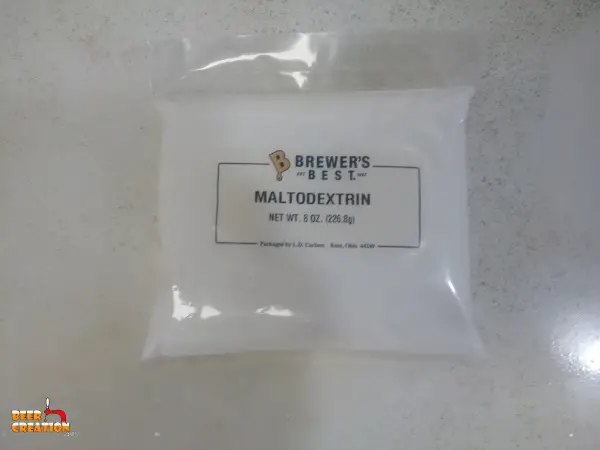
White refined sugar, or sucrose, can be used instead of dextrose, which is cane sugar. However, because of the molecular structure of sucrose, yeast has to separate the glucose and fructose components before it can ferment it. This is why dextrose, a double glucose molecule, is favored for priming sugar.
Can I use sugar in a yeast starter?
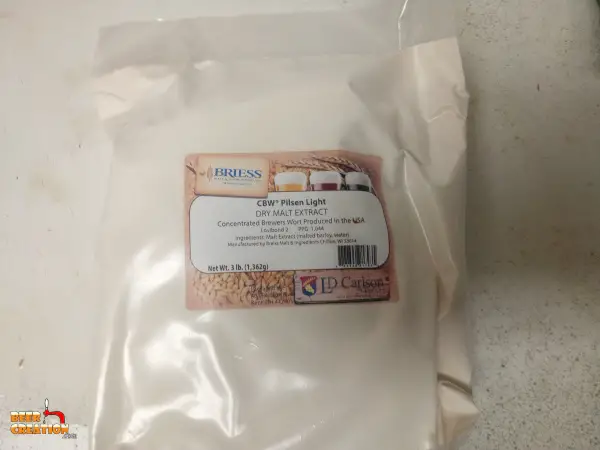
A yeast starter is primarily used to produce a healthy yeast population which, when introduced to your wort, will be able to fight off any other microorganisms and dominate the environment. Just like teenagers raised on sugary snacks, yeast will survive it but may not be the go-getting mini-fungi you want on your team.
By that I mean, there is evidence that when yeast is presented with different fermentables, it generally attacks the sucrose first, breaking it down into sizable glucose and fructose bites. It then tackles other types of sugars. It’s said that yeast raised on some sugars may not even bother to attempt to break down more complex sugar molecules, which leaves them unfermented in your beer.
So, in conclusion, it’s recommended that you always use a malt extracted sugar source to produce a mini-wort for your yeast starter. This means that your yeast workers are more likely to do a better job on all your fermentables later on.


